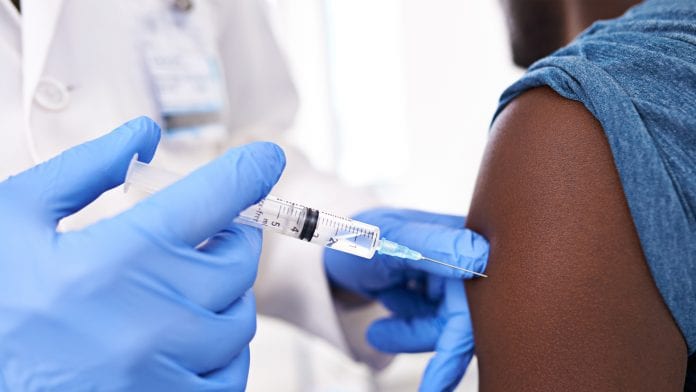
The government must be clear on information about vaccine creation to help vaccine uptake in the BAME community.
Since the start of the COVID-19 pandemic evidence has emerged that COVID-19 is disproportionately impacting the BAME community, however, vaccine uptake among this group is low. Nigeria-born academic Dr Perpetua Emeagi, Lecturer in Human Biology and Biological Sciences at Liverpool Hope University, says that deep scepticism surrounding the physical production of the vaccine is one of the key issues among community members she speaks with.
Emeagi has said that there is not enough compelling information about vaccine creation on official Government channels – and what does exist is currently aimed at health professionals, not the general population.
Disseminating accurate health information
Dr Emeagi, who is experienced in vaccine development, has said that, while there is detailed information on the individual vaccine developers’ websites, such as Pfizer and AstraZeneca, it is still not getting to the people who need to hear it.
“I get a lot of calls and emails each week asking me exactly how the mRNA COVID-19 vaccine is produced. That tells me an informational need is not currently being met – and it is vital we fill this void with accurate, appropriate and easy to digest advice.
“What materials there are on the Government website is perhaps tricky to find, and then aimed predominantly at health professionals rather than the average person. We need to do more to get this information out to those with real concerns about a vaccination programme they are reluctant to embrace.
“Overall, when it comes to dissemination of information in BAME communities, I’ve been less than impressed.”
Misunderstanding the vaccines
Dr Emeagi highlights most people think the mRNA vaccine, which tricks the body into making a viral protein in turn triggering an immune response, is new, and that in the BAME community many feel as though they are being used as guinea pigs for a new vaccine method, raising concerns it might alter DNA.
“It actually works on a different pathway altogether,” says Dr Emeagi.“Although this mRNA based COVID-19 vaccine is the first to be approved with this technology, mRNA technology is not new. The research into the use of this technology for vaccine development has been ongoing for decades and several vaccine candidates for other diseases have been trialled. If there were problems with the technique, they would have been identified long ago.
“What the Government needs to do at this point is to run a serious, dedicated programme of presentations explaining how the vaccine is produced from start to finish – from application to emergency vaccine production, to clinical trials, to rolling it out, and what the outcomes are in individuals who’ve already received it. People simply don’t understand it, and I feel if there was more awareness about the technology then people would be more inclined to get vaccinated.”
Dr Emeagi’s advice comes after the Government said this week it was ‘very concerned’ about low vaccine uptake among BAME communities.
Speaking after new data released by the Royal College of GPs found that 90% of vaccine doses administered so far have been given to white people, vaccines Minister Nadhim Zahawi said: “If one particular community remains unvaccinated, then the virus will seek them out and it will go through that community like wildfire and that’s not something any of us wish to see.”
Dr Emeagi highlights that a failure to vaccinate some groups could potentially result in new disease ‘epicentres’ forming.










